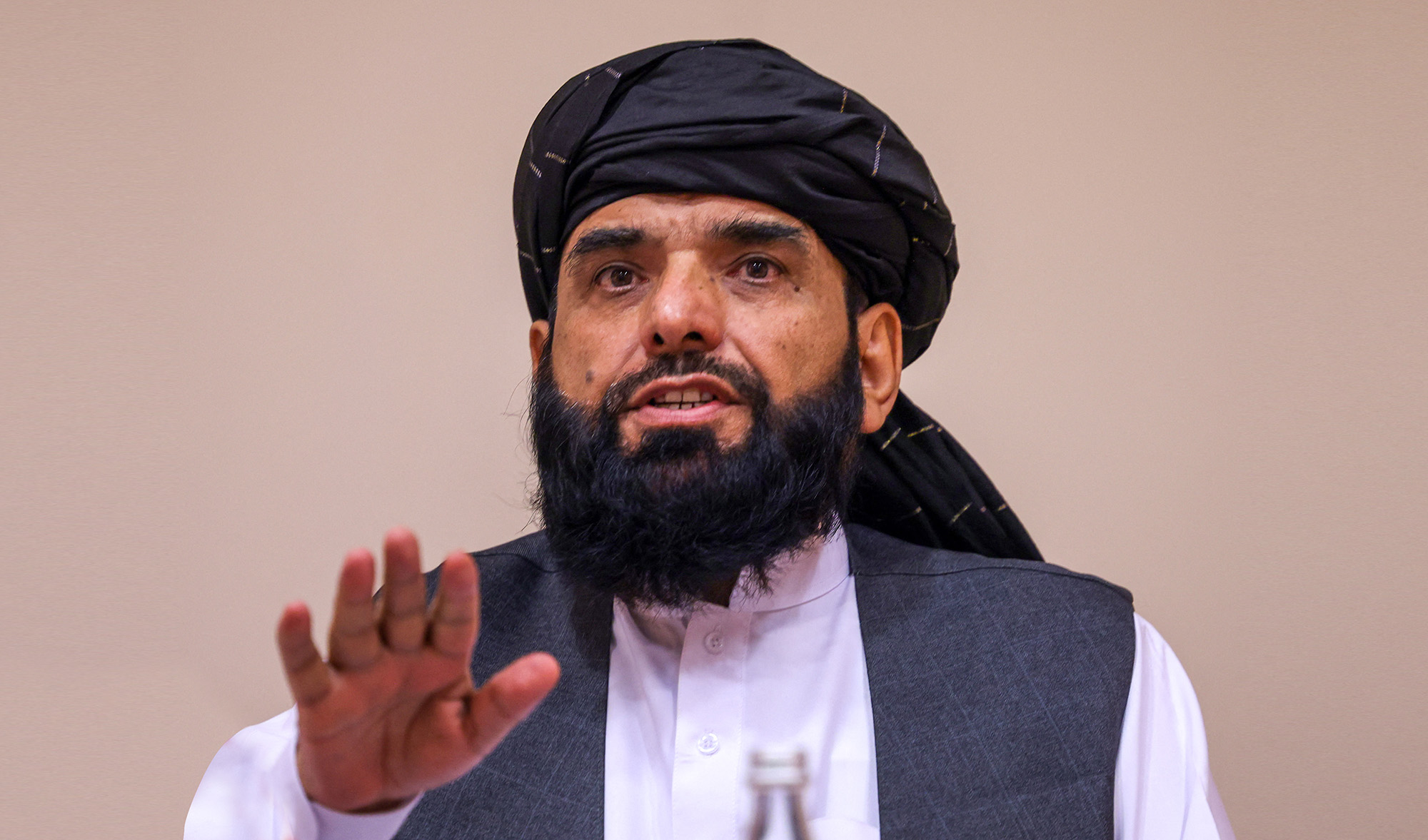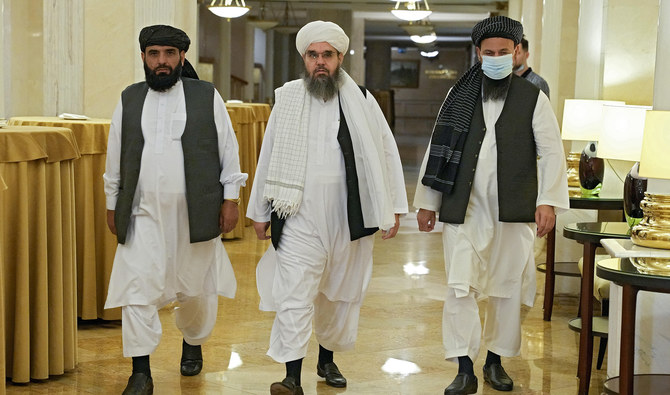DUBAI: Taliban spokesman Suhail Shaheen said this week the insurgent group was more qualified than the Kabul government to run a future political setup in Afghanistan, as violence surges in the war-torn country and doubts mount about the future of United States-backed peace negotiations.
Taliban officials said last week the group had taken control of 85 percent of territory in Afghanistan, a claim Kabul has dismissed as a propaganda campaign launched as foreign forces, including the United States, withdraw after almost 20 years of fighting.
In an exclusive interview with Arab News on Wednesday, Shaheen said “tens of districts” were surrendering to the Taliban daily, saying this was happening despite the “weapons and armaments” available with the Afghan security forces. In the last two weeks, the Taliban have overrun areas bordering five countries — Iran, Tajikistan, Turkmenistan, China and Pakistan.
When asked if the Taliban had the expertise and the budget in order to run the day-to-day affairs of the areas they were capturing, Shaheen said:
“We are the people of Afghanistan. We are living among the people. We have experience not only for one year [but] for the past 25 years. Our governors, security chiefs, provincial security chiefs, the judges, ... and all commissions, which are equal to a ministry, have been working for the last 25 years. So all our people have experience. They are more experienced than those in the Kabul administration.”

Taliban negotiator Suhail Shaheen attends a press conference in Moscow on July 9, 2021. (AFP/File)
The Taliban spokesperson said there was no change in the traffic of people and goods on the border crossings the Taliban had captured, and traders were carrying on with businesses “normally“: “Now, under the control of the Islamic Emirate of Afghanistan, they are doing it without any corruption, easily and normally. They are very happy with that.”
Shaheen said schools, offices, and all other establishments in Taliban-captured territories had been asked to remain open and functioning. However, he appealed to the United Nations and other international organizations and countries to assist the Taliban financially.
“That is important for the facilities to be provided to the common people,” he said. “We have almost 85 percent of the Afghan territory in our control. So in order to keep all these offices intact, operative, and active, we do need financial assistance.”
Part of the US pullout deal signed by the Taliban and Washington in February last year was the group’s commitment to negotiate a cease-fire and a power-sharing deal with the Kabul government.
But little progress has been made toward this even after several rounds of negotiations since September.
“First, we should reach a solution about the political roadmap and then we [will] go for a cease-fire,” Shaheen said when asked what the Taliban’s conditions were to agree to a cease-fire. “There is a sequence.”
The Taliban spokesperson said no individual or group would be allowed to use Afghan soil to attack another country, including Al Qaeda, which mounted the September 11 attacks that prompted the US invasion of Afghanistan, and the Tehreek-Taliban Pakistan (TTP), which is responsible for dozens of high-profile attacks in Pakistan and whose leaders and foot soldiers are believed to be hiding in sanctuaries inside Afghanistan.
“We had made a commitment that we will not allow anyone to use the soil of Afghanistan against the United States, its allies, and other countries,” Shaheen said, saying the group had “sent our message” to the Al Qaeda.
“About TTP or any other group, we have a commitment that we will not allow anyone to use the soil of Afghanistan against another country,” he added. “Right now ... we do not have all the territory of Afghanistan in our control. When a new Islamic government will be in place, that policy [of not letting anyone use Afghanistan soil against another] will be implemented. That is clear and is our commitment.”
When questioned about how a new Taliban government would balance its ties between archrivals Pakistan and India, both of whom have interests in Afghanistan, Shaheen said:
“We do not want Afghanistan to be a field of rivalry or rivalries of any countries ... When there is an Islamic government in place in Afghanistan, I think we need reconstruction of the country. Therefore, we would like to have cooperation with other countries, which benefit our people, but, at the same time, we do not want Afghanistan to be a center of rivalries.”
























